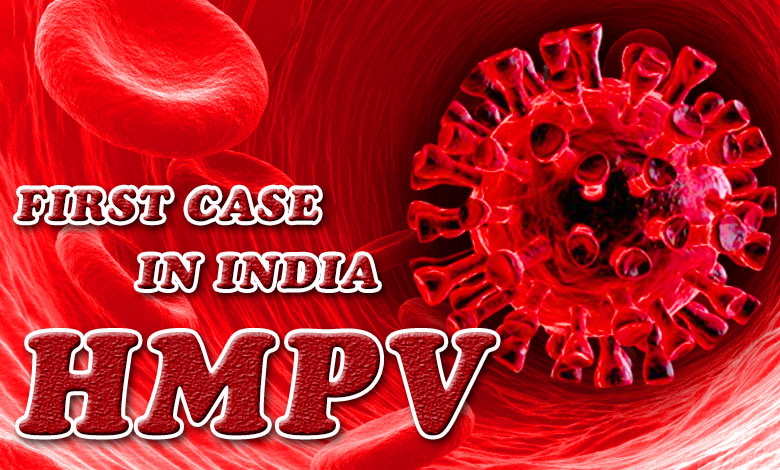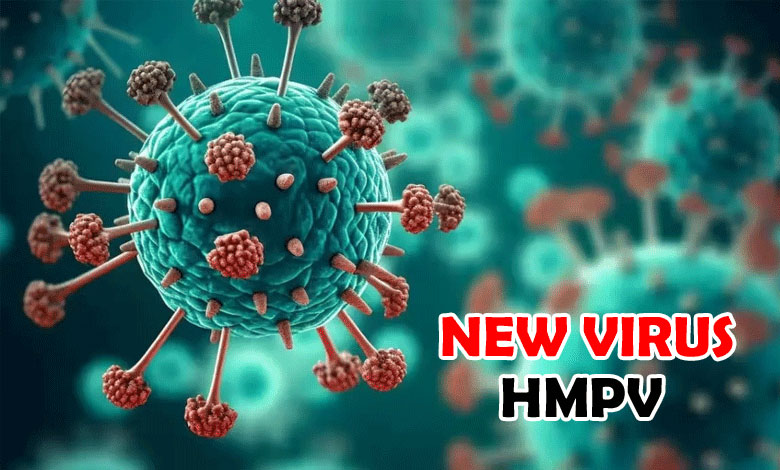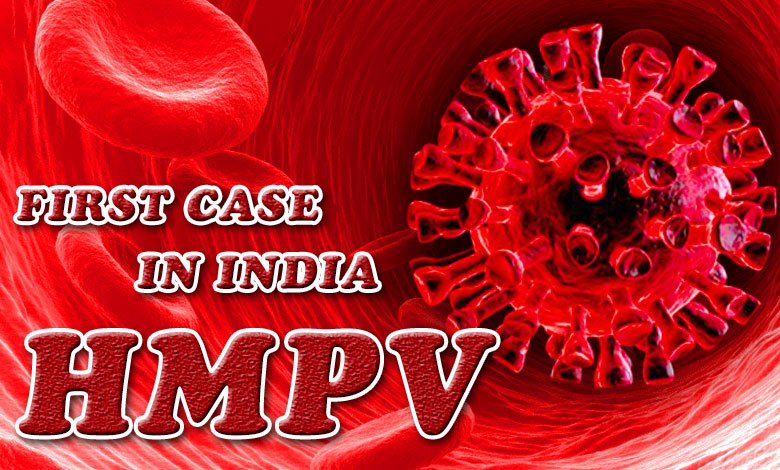
Bengaluru: In a concerning development, India has reported its first confirmed case of Human Metapneumovirus (HMPV) in Bengaluru.
This respiratory virus, which has been causing alarms worldwide due to its potential impact, was detected in a baby admitted to a local hospital.
Although Karnataka’s health authorities have confirmed the presence of HMPV, they are still uncertain about the specific strain of the virus and the broader implications of this case on public health.
As the number of HMPV cases rises globally, particularly in countries such as China and Malaysia, there is growing concern about the virus’s potential to spread further.
HMPV is an airborne virus with respiratory symptoms that closely resemble those of COVID-19, such as fever, cough, nasal congestion, and other upper respiratory symptoms.
Table of Contents
However, while most cases tend to be mild, HMPV can pose significant health risks, especially for infants, elderly individuals, and those with compromised immune systems.
Health experts are keeping a close watch on this developing situation, as the virus continues to spread across different regions of the world.
What is Human Metapneumovirus (HMPV)?
Human Metapneumovirus is a respiratory virus that primarily affects the upper and lower respiratory tract. It is transmitted through respiratory droplets, meaning it can spread easily through coughs, sneezes, and close contact. The virus was first identified in 2001, but it has only recently become a cause for concern as its cases continue to rise worldwide.

Symptoms of HMPV
The symptoms of HMPV are similar to those of common respiratory infections and often resemble COVID-19. These symptoms include:
- Fever
- Cough
- Nasal congestion
- Sore throat
- Shortness of breath
For the majority of people, the illness remains mild, and symptoms resolve on their own without requiring specialized treatment. However, in certain high-risk groups, such as infants, the elderly, and people with weakened immune systems, the virus can lead to more severe respiratory problems, including bronchiolitis, pneumonia, and respiratory failure.
What Makes HMPV Dangerous for Vulnerable Populations?
Although most individuals recover from HMPV without complications, the virus poses a serious threat to those with weakened immune systems. This includes:
- Infants
- Elderly individuals
- People with chronic respiratory conditions such as asthma and COPD
- Individuals with weakened immune systems due to cancer treatments, HIV, or other medical conditions
For these individuals, the virus can quickly escalate into more serious respiratory conditions, which may require hospitalization.
Current Status of the HMPV Outbreak in Bengaluru
The Karnataka government has confirmed the first case of Human Metapneumovirus in India, found in a baby who was hospitalized in Bengaluru. While the authorities have not yet confirmed the exact strain of the virus or the potential local transmission risks, investigations are underway to assess the extent of the outbreak and its possible spread in the community.

Health officials in Bengaluru have been working to trace the source of infection and monitor any potential local transmission. The health agencies are also emphasizing the importance of maintaining strict respiratory hygiene and staying alert to any new symptoms among the population.
Global Impact and Spread of HMPV
The news of the first confirmed case of HMPV in India comes at a time when the virus is causing concern globally. Outbreaks have already been reported in China and Malaysia, adding to the growing anxiety about the virus’s potential spread. Health officials worldwide are urging the public to take preventive measures, as there is currently no vaccine or antiviral treatment available for HMPV.
How to Prevent the Spread of HMPV
As there is no specific vaccine or antiviral treatment for HMPV, prevention remains the best course of action. Health experts are advising individuals to practice the following preventive measures:
- Regular handwashing with soap and water
- Covering coughs and sneezes with a tissue or elbow
- Avoiding close contact with infected individuals
- Wearing masks in crowded places or when feeling unwell
- Maintaining respiratory hygiene to prevent the spread of respiratory droplets
Also Read | Is the New Virus from China Dangerous for Children and Elders? Key Symptoms Indians Must Watch Out For
Could HMPV Be the Next Big Health Challenge?
With increasing HMPV cases globally and the rising number of reported outbreaks, there are growing concerns about whether the virus could become the next major health challenge worldwide. Health experts emphasize that while HMPV may not yet present a global emergency on the scale of COVID-19, its potential to infect vulnerable populations could lead to a significant burden on healthcare systems.
Many public health experts have raised alarms about the impact of a widespread HMPV outbreak, especially in countries with large populations and relatively weak healthcare infrastructure. For India, where respiratory infections already pose a significant public health challenge, the recent discovery of HMPV could add to the strain on medical facilities, particularly if the virus spreads rapidly.
